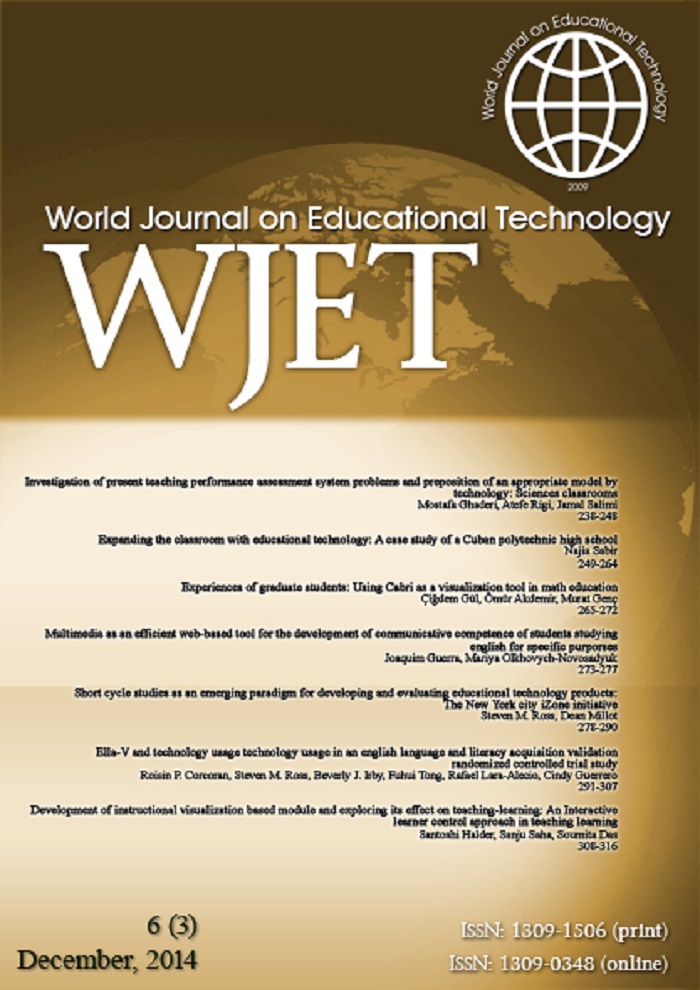Short cycle studies as an emerging paradigm for developing and evaluating educational technology products: The New York city iZone initiative
Short cycle studies as an emerging paradigm for developing and evaluating educational technology products: The New York city iZone initiative
Author(s): Steven M. Ross, Dean MillotSubject(s): Education, ICT Information and Communications Technologies, Pedagogy
Published by: Birlesik Dunya Yenilik Arastirma ve Yayincilik Merkezi
Keywords: Zone; learning disabilities; cognitive;
Summary/Abstract: With advances in cognitive neuroscience and the developing connection between neuroscience and education in recent years, new windows has been opened in the realm of teaching and learning for the education experts. So education has vastly benefited from the results of researches in neuroscience to improve learning. The study strived to investigate the effectiveness of “brain based teaching” on the executive functions of the students with mathematics learning disability in Isfahan city. To this end, three student with mathematic learning disability were selected using purposeful sampling. In this investing used a single subject with A-B design. Intervention was started after determining the base-line. The “brain based teaching” package were taught to each single participants for 26 intervention sessions. And 1 month after intervention period follow-up test was performed. The instruments used, included, Raven intelligence test, The Iran key math diagnostic arithmetic and Conner’s questionnaire neuropsychological. The gathered data was analyzed using descriptive statistics and visual analysis. Based on that, Results revealed that during the visual analysis of data graphs for executive functions deficits, the study intervention was significantly effective for all 3 participants. This study showed that brain based teaching improves the executive functions of the students and thus, could be used in educating children with learning disabilities.
Journal: World Journal on Educational Technology: Current Issues
- Issue Year: 6/2014
- Issue No: 3
- Page Range: 278-288
- Page Count: 11
- Language: English

